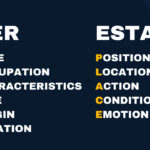The terms “Nurse Practitioner” (NP) and “Doctor of Nursing Practice” (DNP) are often used in discussions about advanced nursing careers, and it’s easy to see why confusion arises. While some nurse practitioners do hold a Doctor of Nursing Practice degree, it’s crucial to understand that NP refers to a professional role and DNP signifies the highest level of clinical nursing education.
Navigating career paths in nursing requires a clear understanding of these distinctions. This article aims to clarify the differences between a DNP and an NP, helping aspiring and current nurses understand how a Doctor of Nursing Practice degree can enhance a nurse practitioner career and overall professional trajectory. Let’s delve into what each term means and how they relate to each other.
What Is a Nurse Practitioner (NP)?
A Nurse Practitioner (NP) is a highly skilled and educated medical professional who has advanced training to provide a wide range of healthcare services. NPs are essential in today’s healthcare system, offering patient-centered care in various settings. Their responsibilities typically include:
- Patient Assessment and Diagnosis: NPs are qualified to assess patients’ health status, diagnose medical conditions, and develop treatment plans.
- Diagnostic Testing: They can order, perform, and interpret diagnostic tests to aid in accurate diagnoses and monitor patient health.
- Medication Management: NPs have the authority to prescribe and manage medications, ensuring patients receive appropriate pharmacological interventions.
- Preventive Care and Health Promotion: A key focus for NPs is on disease prevention and promoting healthy lifestyles through patient education and guidance.
- Patient Counseling and Education: NPs advise, counsel, and support patients and their families in making informed decisions about their healthcare.
The scope of practice for a nurse practitioner is broad and adaptable, influenced by their chosen specialization and the regulations of the state in which they practice. Many NPs specialize in areas such as family practice, women’s health, geriatrics, pediatrics, or acute care, focusing on specific patient populations. They practice in diverse healthcare environments, including:
- Hospitals (public and private)
- Community Health Clinics
- Outpatient Centers
- Urgent Care Facilities
- Private Practice Offices
 A DNP-prepared nurse in a patient consultation with their partner, demonstrating patient-centered care and advanced nursing practice.
A DNP-prepared nurse in a patient consultation with their partner, demonstrating patient-centered care and advanced nursing practice.
One of the significant advantages of becoming an NP is the increasing trend towards practice autonomy. A growing number of states grant NPs full practice authority, allowing them to practice independently, evaluate patients, order tests, and prescribe medications without mandatory physician supervision.
NP Salary Expectations
According to PayScale data from December 2020, nurses holding a Master of Science in Nursing (MSN), a common educational path for NPs, earned a median annual salary of approximately $95,000. However, it’s important to note that NP salaries can fluctuate based on several factors: geographic location, years of experience, educational attainment, certifications, specialization, and the specific employer. Specialization significantly impacts earning potential. For instance, PayScale reported median salaries around $103,000 for acute care nurse practitioners and $111,000 for psychiatric nurse practitioners, highlighting the influence of specialty demand and complexity.
Steps to Become a Nurse Practitioner
The demand for NPs is robust across the United States, with the U.S. Bureau of Labor Statistics projecting a remarkable 52% job growth rate for nurse practitioners between 2019 and 2029. For those interested in a fulfilling and impactful career, becoming a nurse practitioner involves these key steps, as outlined by the American Association of Nurse Practitioners (AANP):
- Earn a Bachelor of Science in Nursing (BSN) Degree: A BSN degree provides the foundational knowledge and skills for advanced nursing practice.
- Pass the NCLEX-RN Exam: Successful completion of the National Council Licensure Examination for Registered Nurses (NCLEX-RN) is required to become a registered nurse (RN).
- Obtain an MSN or DNP Degree: Pursue either a Master of Science in Nursing (MSN) or a Doctor of Nursing Practice (DNP) degree program with a focus on nurse practitioner studies.
- Achieve National Board Certification: Gain national board certification in a chosen NP specialty area, demonstrating competency and expertise.
- State Licensure or Registration: Become registered or licensed as an NP by the nursing board in the state where you intend to practice.
What Is a Doctor of Nursing Practice (DNP)?
The Doctor of Nursing Practice (DNP) is a terminal degree in nursing, representing the highest level of education for nurses in clinical practice. It’s positioned above the MSN and is distinct from the Ph.D. in Nursing, which is research-focused. The DNP is designed for nurses seeking to excel in advanced clinical practice roles, leadership positions, and roles in nursing education and administration. DNP-prepared nurses are equipped to translate research into practice, improve healthcare systems, and lead in a complex healthcare environment.
A DNP degree can open doors to a variety of advanced career paths, including:
- Advanced Practice Registered Nurse (APRN) roles (Nurse Practitioner, Clinical Nurse Specialist, Nurse Anesthetist, Nurse-Midwife)
- Nurse Leader and Executive positions
- Nurse Educator roles
- Healthcare Administration and Management
Nurses with a DNP are prepared to utilize evidence-based practice to enhance patient care. For example, a Family Nurse Practitioner with a DNP (DNP-FNP) can leverage data analytics to identify areas for process improvement and ultimately achieve better patient outcomes.
DNP Salary Expectations
Investing in advanced education, such as a DNP, often translates to enhanced career opportunities and increased earning potential. With a growing demand for advanced practice registered nurses and nurse leaders amidst a nationwide nursing shortage, healthcare organizations are increasingly recognizing and rewarding DNP-prepared nurses. PayScale data from December 2020 indicates that DNP-prepared nurses earned a median annual salary of approximately $103,000. This reflects the value placed on the advanced skills and leadership capabilities that come with a DNP.
Steps to Become a DNP-Prepared Nurse
The journey to earning a DNP degree varies depending on a nurse’s prior education and experience. There are different pathways to pursue a DNP:
BSN to DNP
For RNs who hold a Bachelor of Science in Nursing (BSN) and have passed the NCLEX-RN, a BSN-to-DNP program is a direct route to doctoral education. These programs typically integrate master’s-level and doctoral-level coursework, allowing nurses to earn their DNP more efficiently. BSN-DNP programs often allow specialization within a specific APRN role (NP, CNS, CRNA, CNM) or in areas like leadership or informatics. Gaining experience in a chosen specialty area before applying to a DNP program, such as mental health, pediatrics, or acute care, is beneficial for career focus.
MSN to DNP
For nurse practitioners and other nurses who already have a Master of Science in Nursing (MSN), an MSN-to-DNP program is the pathway to doctoral education. These programs build upon existing graduate-level knowledge and focus on developing advanced leadership, systems thinking, and evidence-based practice skills. MSN-DNP programs are ideal for NPs seeking to enhance their leadership capabilities, move into executive roles, or further refine their clinical expertise through a doctoral lens.
DNP vs. NP: Opportunities and Career Advancement
While the terms are distinct, the DNP degree significantly enhances the opportunities available to a Nurse Practitioner. Earning a DNP can make an NP more competitive in the job market and open doors to advanced roles. While MSN programs equip nurses with the skills for quality patient care, DNP programs delve deeper into:
- Nursing Theory
- Evidence-Based Practice Methodologies
- Principles of Advanced Practice Nursing
- Health Policy and Advocacy
- Nursing Leadership and Healthcare Systems Management
For NPs considering long-term career goals, a DNP offers significant advantages. A DNP with an NP specialization can lead to national certification as an Advanced Practice Registered Nurse (APRN) and positions NPs for career advancement into leadership and executive roles, such as nurse director or chief nursing officer.
Benefits of Earning a DNP for NPs
While an MSN is currently the minimum educational requirement for APRN practice, pursuing a DNP offers compelling benefits for nurse practitioners:
-
Enhanced Career Opportunities and Compensation: DNP graduates are competitive for higher-paying and more influential positions, including leadership and executive roles. The advanced knowledge and skills gained in a DNP program are valued in today’s complex healthcare landscape.
-
Future-Proofing Your Credentials: The American Association of Colleges of Nursing (AACN) recommended in 2004 that the DNP should become the entry-level degree for APRNs. While this recommendation hasn’t been universally adopted yet, the trend in healthcare education is towards higher standards. Earning a DNP now provides a future-proof credential and positions NPs at the forefront of advanced practice nursing.
What to Expect in a DNP Program
DNP programs are rigorous and comprehensive, designed to develop advanced competencies in nursing practice. The American Association of Colleges of Nursing outlines eight core competencies for DNP graduates:
- Integration of Knowledge: Synthesize nursing science with ethical, psychosocial, analytical, and organizational sciences.
- Practice Evaluation and Improvement: Develop and evaluate care delivery models, assess cost-effectiveness, and apply financial principles.
- Information Technology for Healthcare Improvement: Utilize information technology to improve care quality, track outcomes, and analyze data.
- Quality and Safety Monitoring: Design and maintain systems to evaluate care outcomes and patient engagement with health technologies.
- Health Policy and Advocacy: Understand policy development, advocate for patients and the nursing profession, and provide leadership in policy.
- Interprofessional Collaboration: Ensure effective communication and collaboration across healthcare disciplines.
- Population Health Management: Analyze epidemiological, environmental, and biostatistical data to manage population health and address health disparities.
- Advanced Clinical Practice Expertise: Demonstrate advanced clinical judgment, accountability, and expertise in improving patient outcomes.
Pursue Your DNP Online
For busy working nurses, online DNP programs offer a flexible and convenient way to advance their education. Universities like Bradley University provide online DNP programs with tracks for Family Nurse Practitioners and Nurse Leadership, allowing nurses to pursue doctoral studies while managing personal and professional commitments.
If you are considering the next step in your nursing career and exploring the benefits of a DNP, investigate how an online Doctor of Nursing Practice program can help you achieve your professional aspirations and become a leader in the nursing field.
Recommended Readings
Nurse Practitioner vs. RN Career Paths
Should I Move from an MSN to DNP?
Sources:
American Association of Colleges of Nursing, DNP Education
American Association of Nurse Practitioners, Doctor of Nursing Practice
PayScale, Doctor of Nursing Practice Average Salary
PayScale, Master of Science in Nursing Practice Average Salary
U.S. Bureau of Labor Statistics, Nurse Anesthetists, Nurse Midwives, and Nurse Practitioners

